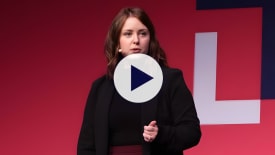
Sign up to our Originals newsletter
Subscribers get the best engineering leadership content in their inbox every week.
Latest
Editor’s picks
What is an engineering manager? Taking the step up
This fulfilling role takes you a step beyond a lead engineer. Find out how to best showcase your skills to land it.

London • June 2 & 3, 2026
LDX3 London agenda is live! 🎉
Essential reading
On our Engineering Manager playlist

The Manager’s Path: Camille Fournier in conversation
A guide for tech leaders navigating growth and change.

Things I got wrong when preparing for my first Engineering Manager role
Ferit Topcu shares his own experiences in this transition, the errors I made, and how I overcame them.

What we talk about when we talk about leadership
Exploring key leadership themes from years in tech, this talk offers guidance and practical strategies to help engineers become the leaders they want to be.

On-call revolution: Building a culture of ownership and collaboration
Discover how innovative on-call rotations empower developers, foster team collaboration, and reduce complexity, creating a cohesive, ownership-driven culture that enhances service quality.

Managing authentically across levels
Learn how to manage engineers at all levels with practical tips for adapting your style to support growth and foster a thriving, high-performing engineering team.
More for Engineering managers
-
Metrics don’t tell the whole story
Metrics can clue you in on issues proliferating in your systems, but customers’ anecdotal feedback can help you catch unknown unknowns.
-
Why introverts get overlooked (and what to do about it)
Introverts have natural abilities that can make them the strongest leaders, but getting the visibility on these skills is the key.
-
The rise of coding with parallel agents
Exponents see it as the future of software development. Do they have a point?
-
What happens when “learn to code” fails a generation?
Options are thin on the ground for junior devs as AI and economic factors cut off blood supply to their careers.
-
Clear technical vision is the key for aligned growth
Technical visions are the guardrails that keep decision-making aligned across orgs.
-
4 steps to speed up code reviews
The culture changes you need to make to stop code reviews from demoralizing teams.
Videos for Engineering managers
-

Debugging self-doubt: A framework for building confidence
Explore a practical framework for tackling self-doubt with a debugging mindset to build lasting confidence and stronger teams.
-

The twin mandate: What leaders still don’t get about observability
Learn why many teams miss observability’s full potential and how leaders can unlock exceptional engineering performance through it.
-

The joy of being wrong
Discover how rethinking assumptions drives better decisions, strengthens leadership, and builds more adaptive, collaborative teams.
-

Target architecture – Align. Execute. Deliver.
Explore how defining a clear target architecture boosts alignment, speeds up execution, and scales teams through better decision-making.
-

Machine learning in production. The hidden effort
Uncover the hidden engineering work behind real-world ML products, from scaling and orchestration to cost control and team alignment.
-

Couple’s therapy for product and tech
Learn how to build a strong, lasting partnership between product and tech through alignment, trust, and intentional collaboration.
-

Journeys in diversity – what difference really means
Discover what true inclusion means by exploring practical ways to support neurodivergent colleagues and create genuinely diverse teams.
-

We brought AI into our sprints, here’s what changed
Explore how integrating AI into product sprints changed team habits, improved delivery, and revealed what works and what breaks in practice.
-

Rethinking interviewing in an AI era
Explore how to redesign technical interviews for an AI era by focusing on real-world thinking, communication, and human-centered evaluation.
-

Migrations done right: Success stories and lessons learned
Learn proven strategies for executing large-scale system migrations safely, using incremental rollouts, clear planning, and strong stakeholder communication.
-

Latency, load, and leadership: Building a team nervous system
Discover how to build feedback systems that detect early stress signals, enabling healthier, more resilient, and productive teams.
-

Building AI into critical systems: Lessons learned
Learn how the Financial Times built AI into paywalls and retention systems, navigating trade-offs, risks, and real-world complexity at scale.


